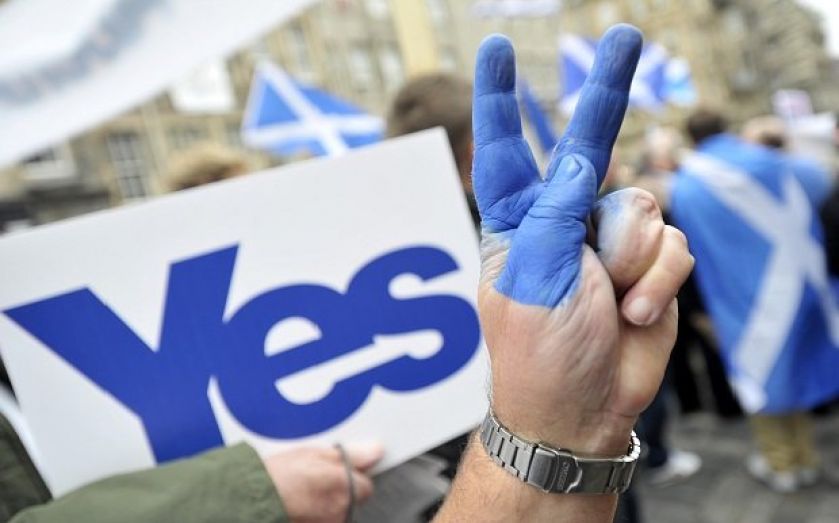Scottish independence: Official campaigns barred from high schools

With less than a month to go before voters north of the border decide whether to ditch the United Kingdom, 27 of Scotland's 32 local councils have barred the two sides from senior schools.
Although the official campaigns may find themselves stuck outside the school gates, pupils are, of course, free talk about the merits or demerits of Scottish secession to their hearts' content.
Scotland's independence referendum will be the first time 16 and 17-year olds can cast a vote. The demographic has been of particular interest to the SNP, who believe younger voters are more likely to swing toward independence.
The research, by the BBC, comes on the first day of "purdah," which prevents government departments from making announcements that could be seen to influence the referendum result. The majority of councils have decided to follow the guidelines of the referendum in a studiously strict manner.
Only five councils will allow the Yes Scotland and the Better Together campaigns to make their case to high school students. The electoral commission has no rules governing whether campaigns can visit schools, so the decision comes down to each local authority.
The Better Together campaign was less than impressed with councils' decisions to restrict campaign access. A statement from the group said: "The decision we take on 18 September will determine the future of Scotland's young people, so it's vital that those with the vote get to hear all of the facts and the arguments.
"For young Scots the idea of creating barriers and limiting their opportunities makes no sense."
The Yes campaign took a slightly more sanguine approach, saying schools' decisions to host independence debates was a matter "for local councils to administer", adding: "Yes Scotland is always happy to accept invitations to debate."
Aberdeenshire council, one of the few authorities allowing the campaigns to make their pitch to pupils, commented: "Official campaign group representatives may be permitted to visit a school for the purposes of taking part in an organised formal debate where there is a balanced representation of views."
Voters young and old will be faced with a range of issues of when deciding which box to tick on September 18, one of the biggest being whether an independent Scotland will continue to use sterling in a formal currency union or opt to unilaterally use the pound.
Yesterday the Adam Smith Institute (ASI) published a report arguing that Alex Salmond's plan B, using sterling without a currency union, should actually be plan A. The report outlined how "adaptive sterlingsation" could benefit the Scottish economy by acting as a market-based mechanism to stabilise demand during a downturn.
Furthermore, the repeal of financial regulations that privilege established banks could keep Scottish banks prudent as there would be no deposit insurance or central bank to act as a lender of last resort, according to the ASI.